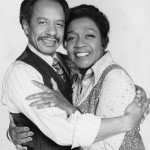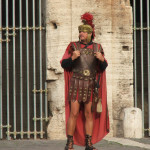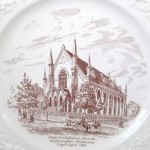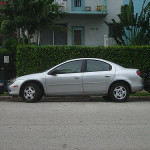Sermon by Randall T. Clayton, Brown Memorial Woodbrook Presbyterian Church, Baltimore MD. April 23, 2017. Text: Luke 24:13-35.
If Jesus didn’t “stay put”, should we? If Jesus is on the road again, perhaps that’s where Jesus will meet us too.
Sermon by Randall T. Clayton, Brown Memorial Woodbrook Presbyterian Church, Baltimore MD. April 23, 2017. Text: Luke 24:13-35.
If Jesus didn’t “stay put”, should we? If Jesus is on the road again, perhaps that’s where Jesus will meet us too.
Sermon by Randall T. Clayton, Brown Memorial Woodbrook Presbyterian Church, Baltimore, Maryland, April 16, 2017. Text: Luke 24:1-12
Sermon by Randall T. Clayton, Brown Memorial Woodbrook Presby Church, Baltimore, MD. March 12, 2017. Text: Luke 13:1-9, 31-35
Sermon by Randall T. Clayton, Brown Memorial Woodbrook Presby. Church, Baltimore MD. March 5, 2017. Text: Luke 10: 25-42
Sermon by Randall T. Clayton, Brown Memorial Woodbrook Presbyterian Church, Baltimore, MD. February 26, 2017.
Text: Luke 9:28-45
Decades ago there was a situation comedy called “The Jefferson’s.” The central characters, George and Louise Jefferson, owned a dry cleaning business that had become quite successful. Their success enabled them to move out of their working class neighborhood in Queens (just down the street from Archie and Edith Bunker, by the way) and into the exclusive confines of  the upper east side of Manhattan. “Moving on up to the east side, to a deluxe apartment in the sky, we finally got a piece of the pie,” their theme song said. “Fish don’t fry in the kitchen; beans don’t burn on the grill. Took a whole lotta tryin’ just to get up that hill. Now we’re up in the big leagues, Gettin’ our turn at bat. As long as we live, it’s you and me baby, there ain’t nothin’ wrong with that. Well we’re movin’ on up, to the East Side. To a deluxe apartment in the sky. Movin’ on up to the east side. We finally got a piece of the pie. [“Movin’ On Up”, Ja’net Dubois & Jeff Barry] George was proud of his success, his piece of the pie. His deluxe apartment in the sky certainly underscored his sense that he had finally made it to Gloryland.
the upper east side of Manhattan. “Moving on up to the east side, to a deluxe apartment in the sky, we finally got a piece of the pie,” their theme song said. “Fish don’t fry in the kitchen; beans don’t burn on the grill. Took a whole lotta tryin’ just to get up that hill. Now we’re up in the big leagues, Gettin’ our turn at bat. As long as we live, it’s you and me baby, there ain’t nothin’ wrong with that. Well we’re movin’ on up, to the East Side. To a deluxe apartment in the sky. Movin’ on up to the east side. We finally got a piece of the pie. [“Movin’ On Up”, Ja’net Dubois & Jeff Barry] George was proud of his success, his piece of the pie. His deluxe apartment in the sky certainly underscored his sense that he had finally made it to Gloryland.
I suppose anyone who could own and live in what has been billed as the most expensive house in the United States might also think they were living in Gloryland. According to a recent article in the Los Angeles Times, [“250 Mission Dollar Property,” Los Angeles Times, January 18, 2017, business section] the 38,000 square foot home is listed for sale at a quarter of a billion dollars. The owner of this house will get a fully stocked wine cellar with over 2500 bottles of wine, a 30 car garage filled with expensive automobiles, and be able to enjoy 12 bedrooms, 21 bathrooms, 3 kitchens, a 40 seat movie theater, an infinity pool with a swim up bar and 270 degree hilltop views from downtown Los Angeles to the ocean. The house even comes with a staff of 7 employees to meet the needs and whims of its owners. Surely if you lived there, you might think you were in Gloryland, at least until the electric bill arrived, or you started waking up with arthritis so bad that every movement was painful, or until you looked down the street or deep into your heart and realized the extent of the world’s need.
On this Transfiguration Sunday, we remember a day when some of Jesus’ disciples must have felt that they had arrived in Gloryland as they witnessed some events on a mountain top that were nothing short of glorious. Their impulse at that moment was to build some houses for those present on the mountain, perhaps deluxe houses at that; but that moment on the mountain top slipped away quickly, and soon they found themselves following Jesus on a journey that would lead to rejection and betrayal, death and finally a glorious resurrection.
Jesus invited his inner circle of disciples — Peter, James and John — to spend some time in prayer with him. And as was his habit sometimes, Jesus chose to get away from the crowds for prayer time, and so he led these three disciples up a high mountain for their talk with God. By the time that the disciples got to that mountain top they were tired and sleepy struggling to stay awake, but thankfully for them and for us, they were able to fight the drowsiness and keep their eyes open and see the glories God had in store for them.
with him. And as was his habit sometimes, Jesus chose to get away from the crowds for prayer time, and so he led these three disciples up a high mountain for their talk with God. By the time that the disciples got to that mountain top they were tired and sleepy struggling to stay awake, but thankfully for them and for us, they were able to fight the drowsiness and keep their eyes open and see the glories God had in store for them.
Struggling to stay awake, they suddenly saw that Jesus’ appearance had changed, and it did so without the aid of a barber, plastic surgeon, and personal fitness trainer. His face changed, and his clothes became dazzling white. And while that was glorious enough, standing beside this glowing Jesus were two of the greatest people in their history, both of whom had been dead for generations: Moses and Elijah. Now truth-to-tell, both of their deaths had been somewhat mysterious. Scripture indicates God had buried Moses when he died but the location of his grave was never disclosed. And Elijah had been “taken up” into heaven. Given the nature of their deaths, and the way God had used them in the past, it was believed that both men would return to earth at the time that God was ready to send the Messiah to announce the Messiah’s coming. So that day on the mountaintop with Moses and Elijah talking to a transfigured Jesus the disciples must have felt as if they had finally made it to Gloryland.
Peter’s impetuous response was to offer to build some houses. One for each of them in fact. Perhaps he wanted all of them to be comfortable; perhaps he wanted to enshrine that moment and hold onto it forever; or perhaps he just said the first thing that came out of his mouth. We  really don’t know his motivation, but whatever the reason for his desire to build some nice homes for all three, while he was speaking a cloud enveloped them all. And as God had done in times past, God spoke in the midst of that cloud. In a voice that was unmistakably God’s, the disciples heard God say: This is my Son, my Chosen; listen to him.” And then (snap fingers), it was over. The cloud disbursed. Moses was gone. Elijah disappeared. And once again Jesus looked just like the man whom they had followed up the mountain and into Gloryland that day.
really don’t know his motivation, but whatever the reason for his desire to build some nice homes for all three, while he was speaking a cloud enveloped them all. And as God had done in times past, God spoke in the midst of that cloud. In a voice that was unmistakably God’s, the disciples heard God say: This is my Son, my Chosen; listen to him.” And then (snap fingers), it was over. The cloud disbursed. Moses was gone. Elijah disappeared. And once again Jesus looked just like the man whom they had followed up the mountain and into Gloryland that day.
Having experienced Gloryland, and with a new assurance that Jesus was the Messiah, as they journeyed down the mountain perhaps they began to wonder if they had misunderstood what Jesus had said just a few days prior about the Son of Man undergoing suffering, and about his rejection and death. With memories of that Gloryland experience fresh in their minds, perhaps they figured that Jesus had either misspoken about what was to come, or they had misunderstood Jesus’ comments about followers denying themselves about followers taking up crosses daily; and perhaps they expected when the next day dawned that their lives would suddenly be easy, that their cupboards would fully stocked, and their enemies would be subdued, and they too would acquire a deluxe apartment in the sky or a home with 270 degree views of city and sea.
But at the foot of the mountain they met a man whose only son was very, very sick. The man begged Jesus to look at the child who was convulsing, foaming at the mouth, shrieking. Apparently the disciples had been unable to heal the man’s son, but he said he was hoping Jesus could. And Jesus did.
Witnessing God’s love, power, and might in that healing, the disciples must have felt at that moment like they were in Gloryland again. Indeed, seeing the father’s face and the son’s peaceful body must have been a glorious moment and given them the assurance that all would really be right with the world and that the Messiah was truly present. But then, that glorious experience ended abruptly when Jesus said, “Let these words sink into your ears: The Son of Man is going to be betrayed into human hands.” And soon thereafter, Jesus set his face toward Jerusalem where he would encounter the worst the world could throw at anyone.
Jesus left the mountain where he had conversed with Moses and Elijah and he sloughed through a world that turned its back on the poor, and he offered hope and called his followers to show mercy and kindness. Jesus came down the mountain and into a world that crushed the spirits of those without voice, and those without standing, and he welcomed all of those, embracing them, standing up for them, inviting those of us who follow him to do the same.
Jesus didn’t ensconce himself in a house that spoke of power and success and he didn’t leave his disciples there either. But rather Jesus took up the cause of those who were oppressed, offering wholeness, peace and dignity to those his culture did not and he says to us, do likewise.
And it may be that as we do likewise we will begin to see at least some hints of Gloryland along the way. You see, I think it’s possible that as we protest actions and policies the hurt the vulnerable we just might get a glimpse of Gloryland in seeing prospects begin to emerge for a world that values all people and insures that all have enough. It’s possible that as we undertake concrete actions to protect God’s creation from the ravages of industry and careless neglect we will see some hints of hope in the actions of others who are joining us in this world. I think if we look, it’s possible to find hints of the joy and peace and wholeness that God has promised even in our daily lives…Perhaps we experience such a moment as we pass the peace with someone worshipping here; or perhaps we experience it as we take food or flowers to one who is mourning, as we hold the hand of one who is dying, or in the countenance of a transgender high schooler who discovers we accept them and will stand up for them against all who would bully or demean them.
Instead of staying up on a high mountain removed from the world’s need, or ensconced in a place that seems safe and secure and allows us to ignore the world’s need, Jesus calls his disciples off the mountain top and into the world, where we can meet the Jesus who journeys with us, and who has broken the power of death, destroyed the power of evil, and who invites us to lift up a cross, and carry it for the sake of those in need in our world.
Yes, in this world at the base on the mountain we will encounter pain and struggle, and no, we may not end up feeling like we have our piece of the pie. Yes, we will see sickness and hunger and violence and division. Yes, we will even need to endure change that is not always wanted and leaves us feeling uprooted; and no, as followers of Christ, we will not be walled away from the world. But if we keep our eyes open, our hearts receptive, and our hands engaged in Christ’s service, I suspect we will also encounter a little bit of Gloryland along the way, at least enough to get us through. Amen.
Sermon by Randall T. Clayton, Brown Memorial Woodbrook Presby. Church, Baltimore MD. February 5, 2017.
Text: Luke 7:1-17
 This is one of those days when I wish we had a screen and a way to project onto it here in the sanctuary, because if we did I’d show you a video produced in Denmark that’s been making it’s way around social media that begins with the camera panning around a big room which has big white squares, boxes, painted on the floor (“What Happens When You Stop Putting People in Boxes”, created by TV2 Denmark).
This is one of those days when I wish we had a screen and a way to project onto it here in the sanctuary, because if we did I’d show you a video produced in Denmark that’s been making it’s way around social media that begins with the camera panning around a big room which has big white squares, boxes, painted on the floor (“What Happens When You Stop Putting People in Boxes”, created by TV2 Denmark).
An unseen voice says, “It’s easy to put people in boxes, there’s us and there’s them. The high earners and those just getting by”. As the announcer says these words a group of people dressed in business attire walks into the room and they all go and stand inside one of those white boxes outlined on the floor. They are then followed by another group of people wearing jeans, tee shirts, and the uniforms of fast food workers who all go and stand in another one of the white squares.
The announcer continues: It’s easy to put people in boxes…“Those we trust and those we try to avoid. There’s the new days and those who’ve always been here.” As the announcer says each of these phrases, a group of similarly dressed and similar looking people enter and go to stand in their respective white boxes on the floor.
“It’s easy to put people in boxes,” the announcer said. “The people from the countryside and those who’ve never seen a cow. “The religious and the self-confident. There are those we share something with and those we don’t share anything with.” One after another all of the white boxes on the floor are filled, with the people in each box resembling somehow the others in that particular box.
The camera then points toward a single character, a person who appears to be a leader, who says to the group of people all standing in their boxes, “Welcome, I am going to ask you some questions today, some of them might be a bit personal but I hope you will answer honestly. Who in this room was the class clown?”
Smiles form on people’s faces and slowly some of the people from the “never seen a cow” box move to the center of the room, along with a couple from the “from the countryside box.” Then a person or two from the “just getting by box’ step toward the center of the room and we see people from virtually all of the boxes meet those in the middle of the room too…all of them, class clowns,
“Who are stepparents?” the leader asks. Once again, people step out of the various boxes they had been standing in, and meet in the middle of the room. And they begin to hug each other and shake hands and talk together.
At this point in the video, the original unseen announcer’s voice returns saying, “And then suddenly there’s us. We who believe in life after death; we who’ve seen UFOs; and all of us who love to dance. We who’ve been bullied and we who’ve bullied others. And then there’s us…we who are brokenhearted; we who are madly in love; we who feel lonely.”
As he says each of these phrases individuals move out of their original boxes and meet-up in the middle of the room acknowledging a commonality that had been obscured by the box they were in originally.
The announcer says, “And then there’s us…we who are broken-hearted; we who are madly in love; we who feel lonely; we who are bisexual…” At this point a single man steps out of his box. He just stands in the middle, all by himself. No one else leaves a box. But in just a second as he stands there looking a little uncomfortable, all alone, the room erupts in applause. And he smiles as the announcer says, “We who are bisexual and we who acknowledge the courage of others; we who have found the meaning of life and we who have saved lives. And then there’s all of us who just love Denmark. So maybe there’s more that brings us together than we think
And as I think about Jesus’ life, and in particular the two stories that we read a moment ago from Luke’s Gospel, it seems to me that Jesus would have liked that video and it’s message about boxes.
In Jesus’ day Jesus’ community put the Romans in a box labeled “bad guys”. They were the oppressors, who ruled with a terrible and brutal force. And so, when a Centurion, the commander of a force of 100 Roman soldiers sends people to Jesus asking for Jesus to heal his slave, it would have been shocking to many in Jesus’ community that Jesus would deign to respond to him because clearly he must be a “bad guy” since he was a Roman centurion. And that Jesus’ response included a trip toward the Centurion’s home was more shocking still because that would have caused Jesus to end up in the “unclean” box.
oppressors, who ruled with a terrible and brutal force. And so, when a Centurion, the commander of a force of 100 Roman soldiers sends people to Jesus asking for Jesus to heal his slave, it would have been shocking to many in Jesus’ community that Jesus would deign to respond to him because clearly he must be a “bad guy” since he was a Roman centurion. And that Jesus’ response included a trip toward the Centurion’s home was more shocking still because that would have caused Jesus to end up in the “unclean” box.
Now it is surely true that many of those who served Rome’s interests were probably brutal and wielded a savage sword, it would appear that this Centurion wasn’t among those. Even though many in Jesus’ community probably put him in the “bad guy” box with the rest of the Romans, this individual doesn’t seem to have been a bad guy. In fact, he had curried friendships among some of the Jews in his town, even going so far as to fund a synagogue for them. And so, when there was a need in his household, some of the Jewish elders came to Jesus for Jesus’ help. As Jesus was on the way to the Centurion’s home, Jesus was met by some of the Centurion’s friends bringing a message from the Centurion that Jesus need not come to his house, that all Jesus needed to do was say the word and the slave would be healed. And as it turned out, Jesus said a word, and the slave was healed, and then Jesus praised the faith of this man many relegated to the “bad guy” box because of his job and his religion. Maybe he wasn’t such a bad guy after all. Maybe even those we relegate to the “bad guy” boxes aren’t so bad either.
 Soon after that Jesus was in a town called Nain, about 25 miles or so from Capernaum where he had healed the Centurion’s slave. As he was entering the town he happened upon a funeral procession. On the bier being carried to a burial place outside the town was the corpse of a man who was probably between 20 and 40 years of age. And in the procession was the dead man’s mother who happened to be a widow who also had no other living sons. As a widow, any wealth that she and her husband had amassed would have gone to her only son when her husband had died. Now that her son was dead, whatever resources he had at his death, would not have flowed back to his mother since women didn’t inherit. So his death did not just plunge her into grief, but into abject poverty as well.
Soon after that Jesus was in a town called Nain, about 25 miles or so from Capernaum where he had healed the Centurion’s slave. As he was entering the town he happened upon a funeral procession. On the bier being carried to a burial place outside the town was the corpse of a man who was probably between 20 and 40 years of age. And in the procession was the dead man’s mother who happened to be a widow who also had no other living sons. As a widow, any wealth that she and her husband had amassed would have gone to her only son when her husband had died. Now that her son was dead, whatever resources he had at his death, would not have flowed back to his mother since women didn’t inherit. So his death did not just plunge her into grief, but into abject poverty as well.
It was a cruel system, that somehow reinforced the culture’s assumptions that women were not of value, and allowed the world to ignore the plight of widows, putting them all into a box with a big label on the outside that said, “Not Worth Much.”
But Jesus looked beyond the labels on the box, and into the box itself. And when he did, he truly saw this widow as a person, a person of value. And when he saw her, he cared about her vulnerability and in his compassion he reached out to her without her even asking him to do anything, inviting her to stop weeping as he said to the dead son, “Arise.” And with that command not only was the son resuscitated but her needs were met as well. With her son alive again she had a means of support…food, housing, clothing were all possible once again. Not worth much? Not in Jesus’ eyes.
The world lumped widows all together, in a box labeled “not worth much“, but Jesus didn’t. Jesus’ own community lumped all the keepers of the Roman law together in a box called “bad guys”, but Jesus didn’t. Jesus own community separated themselves from those who believed differently then they, putting the gentiles into a box with a label that said “Unclean,” but his actions demonstrated that Jesus didn’t. Over and over in Jesus’ life and ministry he tore the labels off the boxes we create, and in fact, invited people out of the boxes we put them in.
I think that we put people into boxes…Christians in one box, Jews in another; Palestinians in one box here , and Israeli’s in a box over there; Republicans and Democrats; Christians and Muslims; Americans and the rest of the world; black and white; gay and straight; the good and the bad. And more than likely all of the people in the “good guy” box look suspiciously like us.
We put people into boxes I think because we think it makes us feel safe to know where everyone is and where they seem to belong. But when it’s all said-and-done, it’s probably only an illusion of security rather than real safety. And perhaps we put people into boxes because it’s just more comfortable when we know where everyone’s place is. With everyone in a box, we are enabled to stroll along a path that doesn’t feel threatening and which doesn’t demand too much of us. Take people out of the boxes, and there’s a possibility that we might find ourselves embarking on a new journey along a different path, which might lead to a new and different future. But the thing of it is, along that new journey there is surely God’s work to do, Christ’s love to share, and where we might have the privilege of compassionately meeting the world’s need in God’s name.
Jesus didn’t put people into boxes; in fact, he tore the labels off of them, and invited people out of them, and he calls us to do the same. After all, there is more that binds us together than separates us in God’s kingdom; and surely there is more that could bring us together than we might think. [walk to display of cardboard boxes in front of communion table] And besides, aren’t these boxes kind of ugly?
Sermon By Randall T. Clayton, Brown Memorial Woodbrook Presby Church, Baltimore MD, January 8, 2017. Text: Luke 3:1-22.
Sermon by Randall T. Clayton, Brown Memorial Woodbrook Presby. Church, Baltimore, MD. December 11, 2016. Text: Isaiah 61:1-11
I was once the pastor of an inner city church which had burned to the ground about 10 years before I arrived. Pretty much nothing was left when the flames were finally doused—there was a partial wall left standing on one side of the complex, a single small stained glass window that was still in one piece, and oddly, virtually all of the choir music. Apparently it had been packed into the music room cubbies so tightly that no air got to it. But everything else was in ruins.
before I arrived. Pretty much nothing was left when the flames were finally doused—there was a partial wall left standing on one side of the complex, a single small stained glass window that was still in one piece, and oddly, virtually all of the choir music. Apparently it had been packed into the music room cubbies so tightly that no air got to it. But everything else was in ruins.
Even though it had been about a decade since the tragic fire had swallowed the building in just a few hours, the memories of the devastation were still fresh on people’s minds during the time I served that congregation. Ultimately it had taken the church three years to rebuild because their insurance nowhere near covered the cost to construct a new church building, and also because they had to fight the city historic commission. The commission was not particularly willing to sign off on a construction permits unless the church was willing to rebuild the new structure exactly like the old one. And the church wasn’t willing to do that. The old structure, built in the 1860s, included a sanctuary that would seat 1200 people, something that a congregation that then numbered about 150 didn’t need and couldn’t afford.
Listening to accounts from my members of how painful it had been to see flames light up the night sky, and to watch the timbers and windows crash to the ground as flames ate up the old wood, I also realized that embedded in these stories was joy. Joy. Yes, joy. During that time in which there building lay in ruins, the church had very significant growth in their membership –the greatest growth, in fact, in decades. New people had been attracted and had become congregational leaders during that difficult time. It was during that period that the church carefully looked at their ministry to discern what God was calling them to become and what their path forward would be in light of the ruins that lay just a few blocks from where they were then gathering on Sunday mornings. The vision they discerned created excitement and ignited passions that carried this group of faithful Christians for a number of years thereafter. And when they talked about the care and concern expressed for them during that time their building lay in ruins by neighboring congregations, and from people they had never met from throughout the country who saw news reports of the fire, and from their Presbytery, it was clear that these expressions of support were seen as signs of God’s presence even among the ruins.
While the new building constructed from the ruins won architectural awards, and while it was sized perfectly for that church, and while it opened renewed opportunities for serving the community, none the less, even years afterward, people still missed the stained glass windows, the high vaulted wooden ceiling of the old sanctuary, and the huge pipe organ too, all of which had been reduced to rubble one night. And yet, there was joy too…Joy that the gentleman who was homeless that the church allowed to sleep in a basement apartment on cold nights had not been hurt in the fire; joy that the congregation had grown in numbers and in commitment through the experience; joy that the fire had destroyed only their building; and joy that they found some new opportunities for mission and ministry even among the ruins. As sad and as tragic as the fire had been, they managed to find joy even among the ruins. And they aren’t the only people who have found joy among the ruins of life.
The community to which Isaiah was speaking in the 61st chapter of the book bearing his name had returned home after 60 years of exile in Babylon. While their homecoming was surely and answer to their fervent prayers, what they found was not what they were longing for. Their beloved temple was in ruins. Villages and homes had been destroyed. It was a bleak time in the nation—there was bitter enmity between rival groups, civil and religious leaders looked only after personal gain and the court system was riddled with corruption. Low community morale coupled with a vindictive spirit was the order of the day. As one scholar wrote, “Whatever joy there may have been in the anticipation and actual activity of returning to the homeland probably disappeared within several years. In place of joy came endless days of frustration and even despair born of summer heat, drought, crop failures, plagues, difficult work, and poverty.” [Author and location of quote unknown to this writer] It was to these people who were living in the mist of physical ruins and emotional ruins that we find the words we read a few minutes ago.
Although you may not have realized it as I read the passage a little while ago, there are actually three distinct speakers and sections in it. The first is Isaiah, who proclaimed that God’s spirit had anointed him to bring good news, to bind the broken hearted, to proclaim liberty, to proclaim the year of the Lord—that time when slaves would be freed, debts marked forgiven, and the world would be marked by equality and justice for all. It was his task, he said, to give the people the garland of joy not the smudge of ashes, to help the people stand strong and tall as a planting displaying God’s glory. And he proclaimed that yes, one day the ancient ruins would be rebuilt and the cities repaired. Maybe it didn’t seem like it, or feel like it, but his message was essentially, God is there with you, even in the ruins. Even though you can’t see it or feel it now, the ruins all around you will one day rise again.
In the next few verses of the passage it is God who is speaking….”I the Lord love justice,” God said. “I hate robbery and wrongdoing.” And, I the Lord, make an everlasting covenant with my people. I am your God. You are my people even among the ruins.
And then, having heard Isaiah proclaim what God’s spirit had anointed him to do, and having heard God reaffirm God’s commitment to God’s people, in the next section it is the people who are responding. And so, although the last few verses in this passage appear to be the words of one speaker, I think it is appropriate to read those verses substituting “we” for “I”.
We will greatly rejoice in the Lord. God has clothed us with garments of salvation. God has covered us with the robe of righteousness. For as the earth brings forth its shoots, and as a garden causes what is sown in it to spring up so the Lord God will cause righteousness and praise to spring up before all the nations.
“Joy to the world,” they could sing, as they remembered God’s love, commitment and promises. Joy to the world, even among the ruins.
Thankfully, our church is not in ruins, but all is not right with the world. Many among us feel unsettled about what tomorrow will bring, and disappointed and fearful of the forces of hate that seem to have been unleashed in recent months in our nation and others know what it means to be scapegoated or victimized or stigmatized. In this post truth world, facts seem no longer to be facts and fake news causes people to take guns to a pizza parlors. And goodness knows, cancer still kills, fires still burn, and special people still die. It’s all enough I think to make us wonder, in times like these can there really be joy?
Julie Andrews once sang about her favorite things and told us that when the dog bites, or the bee stings she remembers her favorite things and then she didn’t feel so bad. [“My Favorite Things”, from Rogers and Hammerstein musical, The Sound of Music]
While perhaps remembering our favorite things can sometimes take some of the sting off of a bad day, or bring a measure of comfort in moments of struggle and trial, I’m not sure that just remembering our favorite things necessarily leads to an abiding sense joy when we find ourselves living among the ruins of our hopes or the ruins of our security or among the ruins of our dreams. But I do think that we might recover a sense of joy even among the ruins by remembering God’s commitment to creation, a commitment and a promise made crystal clear in the birth of Jesus Christ, Son of God, Word made flesh.
And perhaps there is joy to be found in holding tightly to God’s vision for creation as a place where all know peace, all know hope, all have enough, a world that Isaiah compared to a lush, and vibrant garden. Despite what we see and experience in our world that seems to testify to the opposite, the promises of God are Gospel truth. God will not let us go. Evil will not win. God has not abandoned us even when we find ourselves living in the ruins.
 Nenri Nouwen once said, “Joy does not simply happen to us. We have to choose joy and keep choosing it every day.” Perhaps we choose joy in consciously calling to mind what God has done in Jesus Christ, by remembering a holy birth, a faithful life, a cross and an empty tomb as well. Perhaps we choose joy in remembering God’s liberating love in Jesus Christ and by training our sights on God’s vision for creation, and letting that vision fuel us to do our part to free the oppressed, to comfort the mourning, to bind up the broken hearted, to offer a garland instead of ashes and the oil of gladness in the hurting world around us.
Nenri Nouwen once said, “Joy does not simply happen to us. We have to choose joy and keep choosing it every day.” Perhaps we choose joy in consciously calling to mind what God has done in Jesus Christ, by remembering a holy birth, a faithful life, a cross and an empty tomb as well. Perhaps we choose joy in remembering God’s liberating love in Jesus Christ and by training our sights on God’s vision for creation, and letting that vision fuel us to do our part to free the oppressed, to comfort the mourning, to bind up the broken hearted, to offer a garland instead of ashes and the oil of gladness in the hurting world around us.
Because of God’s commitment to us, God’s love for us, and God’s presence among us, it is possible to sing “Joy to the World,” even among the ruins, even this year, even today.
Sermon by Randall T. Clayton, Brown Memorial Woodbrook Presbtyterian Church, Baltimore, MD, November 27, 2016, Advent 1
Text: Daniel 6
 Some years ago a week or two after purchasing a brand new Toyota we were spending a few days relaxing near the coast of Delaware. We went into Rehoboth Beach one evening for dinner, and parked on a residential street. While the houses on that street each had driveways, street parking in that area is at a premium in the middle of summer. We parallel parked our new car, the one without any blemishes or scratches, in a vacant place along the curb. We had dinner, perhaps walking along the boardwalk afterwards, and then headed back to our car. When we got to our car, however, we discovered that the vehicle which had been behind us when we had parked in that spot had been replaced by another car, but driver of that car left theirs parked almost on our bumper. There were not more than a handful of inches between the front bumper of their car and the back bumper of ours. Strangely, the same thing had taken place with the car in front of us. The one that was there when we parked was now gone, and in its place was a different car, whose driver had parked way too close to ours. It was immediately clear that we were boxed in. There was not enough room to maneuver our car out of the parking place and onto the street. We were boxed in. It seemed, at least for the moment, hopeless.
Some years ago a week or two after purchasing a brand new Toyota we were spending a few days relaxing near the coast of Delaware. We went into Rehoboth Beach one evening for dinner, and parked on a residential street. While the houses on that street each had driveways, street parking in that area is at a premium in the middle of summer. We parallel parked our new car, the one without any blemishes or scratches, in a vacant place along the curb. We had dinner, perhaps walking along the boardwalk afterwards, and then headed back to our car. When we got to our car, however, we discovered that the vehicle which had been behind us when we had parked in that spot had been replaced by another car, but driver of that car left theirs parked almost on our bumper. There were not more than a handful of inches between the front bumper of their car and the back bumper of ours. Strangely, the same thing had taken place with the car in front of us. The one that was there when we parked was now gone, and in its place was a different car, whose driver had parked way too close to ours. It was immediately clear that we were boxed in. There was not enough room to maneuver our car out of the parking place and onto the street. We were boxed in. It seemed, at least for the moment, hopeless.
I think many of us experience times like that – times when we are boxed in. Boxed in by our  bodies sometimes when they no longer do the things that we want them to do without crushing pain. Boxed in by a disease that will limit our lives. Boxed in when we face a choice between the lesser of two evils, rather than one choice that seems to be right. Boxed in because the job we want we didn’t get, or the college we hope to get into said “No,” or the investment we had staked so much on didn’t work out. Boxed in when we feel helpless to change a situation in our lives, our community, our nation, the world. Boxed in. Not able to go forward, not able to go backward, just like my car which was parallel parked on a neighborhood street one summer evening. Seemingly stuck in a situation we did not choose and did not wish to be in.
bodies sometimes when they no longer do the things that we want them to do without crushing pain. Boxed in by a disease that will limit our lives. Boxed in when we face a choice between the lesser of two evils, rather than one choice that seems to be right. Boxed in because the job we want we didn’t get, or the college we hope to get into said “No,” or the investment we had staked so much on didn’t work out. Boxed in when we feel helpless to change a situation in our lives, our community, our nation, the world. Boxed in. Not able to go forward, not able to go backward, just like my car which was parallel parked on a neighborhood street one summer evening. Seemingly stuck in a situation we did not choose and did not wish to be in.
The book of Daniel was written during a time when the Jewish people felt boxed in. Written centuries after the story it tells took place, the first readers of it were living in a time when they were experiencing discrimination, when the world looked bleak and the political leadership of their times was scary to them. Written in a difficult time when a people felt boxed in, the book of Daniel contains stories from an earlier day of a people who also were also boxed in a difficult situation they didn’t desire. The stories included in this little book were written to rekindle hope in seeming hopeless times and to help them plot a faithful path in light of their fears for the future.
As the story is told, Daniel was a foreigner and a Jew, living in exile under the Persian government after the nation of Judah fell. Having been carted far from home, and forced to live among people with different customs and a different heritage, Daniel along with the rest of the Jewish people in exile, longed to go back home; they longed to be restored to their homeland; they longed for a future that seemed brighter than their present.
The Persian king under which the Jews in exile lived was King Darius. Ruling a vast kingdom, under Darius there was a whole cadre of subordinate authorities which included three presidents and 120 satraps who essentially served as provincial governors. Now, although he was a foreigner, a Jew, and an exile, nonetheless, Daniel had risen in the ranks to become one of the presidents.
Because of Daniel’s “excellent spirit,” however King Darius planned to give him a rather large promotion, setting him above the other 2 presidents and all the satraps. But the knowledge of that impending promotion made the other presidents and satraps jealous. They tried to find evidence of corruption, or negligence in his duties, but they couldn’t find anything to pin on Daniel that might shoot down his rising star. So, they resorted to lying and conspiracy to get their way.
After having stoked the King’s ego, they told him a bold face lie. They said to King Darius that all three of the presidents and all of the prefects and all of the satraps and all of the counselors and all of the governors had agreed on one thing: that the king should establish and enforce a new rule, that anyone who prayed to anyone other than to Darius should be thrown into a den of lions. But all had not agreed to that—Daniel wasn’t even consulted. “Establish the law,” they said. “Put your signature on the document directing it, so that it can’t be changed or revoked,” they said. That was probably another lie…surely the Persian king could change his laws. Surely.
But be that as it may, the king established the law and at that point it appears to believe he was boxed in and not able to undo what he had done.
Now Daniel was also boxed in by the king’s actions….if he remained faithful to God, he would likely end up tangling with some hungry lions…but if he wasn’t faithful to God he would save his life.
Boxed in. What did Daniel do? He did not simply do nothing even though it appeared he was helpless and the situation seemed quite hopeless. He could have prayed in secret, I suppose. But what would that accomplish? He could have given up prayer as would have been required by the king’s decree. Instead, he opted to engage in civil disobedience. He opted to pray in the open, in the front of picture windows facing Jerusalem, in full view of everyone on the streets below. It was an act of civil disobedience.
 When the conspirators saw Daniel praying in the open, they rushed to the King, reminded him of the interdict he had signed, reminded him that he couldn’t change the law (even when perhaps he could have), and reminded Darius that Daniel now had a date with a lion’s den. Although the king was distressed when he heard about Daniel’s civil disobedience, he didn’t seem to have enough backbone to stand up to his courtiers and so Daniel was dropped into a den of hungry lions, presumably to meet a swift death. But God the defender of the defenseless, God the embracer of the exile and the immigrant, God the upholder of the vulnerable, shut the lions mouths, and Daniel emerged alive, in one piece, healthy.
When the conspirators saw Daniel praying in the open, they rushed to the King, reminded him of the interdict he had signed, reminded him that he couldn’t change the law (even when perhaps he could have), and reminded Darius that Daniel now had a date with a lion’s den. Although the king was distressed when he heard about Daniel’s civil disobedience, he didn’t seem to have enough backbone to stand up to his courtiers and so Daniel was dropped into a den of hungry lions, presumably to meet a swift death. But God the defender of the defenseless, God the embracer of the exile and the immigrant, God the upholder of the vulnerable, shut the lions mouths, and Daniel emerged alive, in one piece, healthy.
When Daniel was boxed in by the king’s decree, he did something to change things. He took some action. And I suspect he was able to take action because he had hope in God’s future. With hope, he prayed in public, he kept the faith. He held onto hope of God’s goodness and deliverance, and he did what he could do to resist the decrees of those in power when their decrees ran afoul of the love, and grace, and calling of God.
When my car was boxed in on a neighborhood street in Rehoboth, we wondered what to do. We realized we could start knocking on the doors of houses along that street in the hopes that we might find the owner of either the car in front of the one behind us. But in all likelihood the owners of those cars weren’t in those homes but in restaurants somewhere else in the town. We thought about calling the police, but other than issue a ticket, we figured there was little they could do. And so, it appeared that in our boxed in state, we could do nothing but sit and wait. But as we sat there, frustrated and angry, we seized upon another option….to use our driving skills and patiently work the car out of its jam. Over the course of the next hour or two we went forward a few inches, turned the wheel, and went back a few inches. Forward and reverse. Forward and reverse. Forward and reverse. Moving ever so slowly, moving ever so carefully, making what felt like almost imperceptible progress with each shift of the car’s direction. But finally, after much work we were able to get free of our box and start on our way home.
Some boxes in which we find ourselves allow only for small actions, like getting my car unboxed from its parking place. Sometimes it’s a multitude of small actions that mount up to ultimately transform the situation. To escape other boxes, or to help others escape them, we may be called us to become civilly disobedient as we engage in the struggle for freedom and liberation for all of God’s people. And other times, getting un-boxed may require that we re-think priorities, re-imagine a future, or commit ourselves to a different path. But in each case, it seems to me, the energy to transform those boxed in situations grows out of hope. Without hope, we would only be helpless in difficult or scary times.
As we enter the season of Advent, we recall where our hope is found: It is found in God’s redemption, God’s salvation, and God’s future. The hope we remember as we prepare for Christmas is a hope that is grounded in what God did in and through a man named Jesus, who looked like us, lived like us, and yet was God. Our hope is in one who was born to a poor, unwed, peasant teenager, who turned the world upside down with his love and who invites us to do the same.
Despite the sometimes bleak outward circumstances in which we find ourselves, despite fear of the future that we sometimes feel which Daniel surely felt too when he was told he couldn’t pray, despite a sense of helplessness to do anything sometimes to change the course of our own history or the history of our world, there is a God in whose future we stand. And knowing that we stand in God’s future, and knowing God’s love shown to us in Jesus Christ, perhaps our hope may motivate us to continue to do whatever it is that we can to stand for love, to stand for justice, to stand for peace, even in this world, even if it means only taking tiny steps.
If we are going to get out of the box, it takes hope. And hope is always in generous supply in God’s household.
Sermon by Randall T. Clayton, D.Min., Brown Memorial Woodbrook Presbyterian Church, Baltimore, Maryland. November 6, 2016.
Text: Jonah 3:1-10
If I say “Jonah”, many of you will probably think of a big fish—a big fish who swallowed up a prophet named Jonah and 3 days later spit him out on dry land. But while that incredible, really unbelievable incident, does occupy a central place in Jonah’s story, ultimately the tiny 44 verse, 4 chapter book really isn’t about a big fish swallowing a Hebrew prophet. The writer employed humor, irony, and exaggeration to point to some deep truths about God.
In Jonah’s day the Assyrians were the major world power, but they were neither benevolent nor kind. They were a ruthless, bent on conquering other nations and expanding their borders and influence, employing brutal and vicious methods to subdue and terrorize their enemies. And their enemies included Israel. So, when God told Jonah to get up and go to Nineveh, the capital of the Assyrian empire, and proclaim God’s judgment against their wickedness, one could understand why Jonah might have been reluctant. Going there could put his life in danger. No Hebrew in his right mind would desire to go near those blood thirsty terrorists. So instead of getting up and going to east, Jonah got up and went west. Instead of going in the direction God called, Jonah went in the exact opposite direction. Facing westward rather than eastward Jonah went to Joppa, a town south of Tel Aviv, and booked passage on a ship bound for Tarshish, which was a town most likely located somewhere along the coast of Spain today.
Run from God and God’s call, Jonah did, but he couldn’t hide from God. Pursuing Jonah, God caused a great storm to arise on the waters, and while the ship’s crew were trying their best to keep their vessel afloat by throwing the heavy objects overboard and praying to their gods, Jonah was below deck asleep. When the captain discovered him down below, interestingly, he didn’t ask Jonah him why he wasn’t helping bail water, but rather he demanded to know why Jonah wasn’t praying too.
Being a rather superstitious lot, sailors sometimes believed that bad storms were some kind of punishment for someone on the ship so the sailors decided to cast lots to see if they could determine whose actions might have caused the storm to rock their boat. Jonah got the short end of the straw. When they asked Jonah if he knew why the winds and waves were threatening both ship and life, and he said, “I know. It’s me. That’s the problem. I am a Hebrew and I worship the God of heaven who made the sea and the dry land. Pick me up and throw me overboard and the waves and wind will calm.”
But the kind, humane, sailors declined to throw Jonah overboard and doubled down on their efforts to keep the ship afloat and get it to the shore. But despite their herculean efforts with their oars, the ship just stayed where it was, rocking and rolling in the tempest that surrounded them. Finally they realized they had no choice but to do what Jonah suggested, and they threw him overboard. When they did, the sea ceased to rage. Then the sailors worshipped God, becoming I suppose Jonah’s first converts.
As Jonah was sinking in the waters of the sea, God provided a large fish to swallow up Jonah, and Jonah spent the next three days and three nights in that fish’s sloshy belly. At the end of three days God spoke to the fish and the fish spewed Jonah out on the shore.
Lying in the sands along the sea, Jonah heard God’s voice again telling him a second time to get up and go to Nineveh. This time Jonah probably figured he had no choice…he could run indeed, but God would pursue. He could flee from God, but he couldn’t escape from God’s call.
So he went to Nineveh, and barely setting his foot inside the city, he preached one of the shortest and least creative sermons ever delivered. He told no jokes, offered no illustrations or poems, but merely said, ““Forty days more, and Nineveh shall be overthrown.” Clearly his heart wasn’t in the task because of getting people to turn around. He thought the Ninevites were beyond salvation and deep down he really wanted them to get their justly deserved destruction anyway.
His sermon, however, was amazingly effective. In fact, an entire city came to believe in God. The entire capital of the empire of Assyria repented. The king declared that all the people would don sackcloth and fast as a sign of their contrition and their intent to change. And furthermore, the king declared it wouldn’t only be people who would wear sackcloth and fast, but even all of the animals in the kingdom would too. Dogs, cats, cattle, donkey, fish, bird would all wear sackcloth and would only drink water. Who knows, the king said, perhaps God will change God’s mind?
Seeing that the people had turned around, God decided not to destroy them.
Now one might assume that a prophet who could get an entire city to convert and to change their ways with a single sermon might have been on top of the world. But Jonah didn’t celebrate his success. In fact, to say he was not happy that God had not destroyed the people would be an understatement. His heart burned with anger when he realized that fire and brimstone weren’t going to rain down on the city of Nineveh. “I knew you are a gracious God, slow to anger and abounding in steadfast love, and ready to relent from punishing…I knew that…that’s why I didn’t want to come to Nineveh…I knew you’d forgive them and they don’t’ deserve it. They need your judgment not your mercy. So, God, Jonah cried, if you are going to have mercy on the likes of the Ninevites, I’d rather just die right here and right now.”
As Jonah was sitting beside the city pouting and sulking and angry, God caused a bush to grow over Jonah’s head which shielded Jonah from the sun and heat of the day. While Jonah was not happy that the Ninevites repented or that God had chosen to have mercy on them, Jonah was surely happy about the bush that shaded him from the searing rays from the sun above in a cloudless sky. Then God appointed a worm to attack the bush, and the bush died, and Jonah found himself sweltering in the hot sun once again…and the fires of his anger were stoked again. But God said to Jonah, “You are concerned about the bush for which you did not labor and which you did not grow, right?” Jonah had to admit God was right. And God said, “So should I not be concerned about Nineveh, the people there and their animals? Should I not be concerned about Nineveh?”
The story of Jonah ends here, but Gods story with God’s people continues.
In a world that tends to see and perpetuate divides based on race, social class, sexual orientation or gender identity, or political party, perhaps Jonah’s story is call for us to look carefully at the judgments we make about entire groups people who are different or who sit on the opposite side of the fence. God may in fact be working among them too. Surely God loves them also.
As we approach the end of an election season that has felt like it’s been going on since Jonah’s day, it is clear that there are significant divides in our country, divides that are deep and wide. But God’s love is deeper than our divisions, and God’s mercy is wider than our sometimes narrow judgments. And therein lies our hope. God shows mercy even to you and to me, as God did to the Ninevites. Despite our propensity to make rash judgments, to perpetuate divisions, or to look askance at entire groups who look or act or believe differently, God stands ready to forgive and to heal.
And, although we may sometimes be reluctant to follow the path of God’s calling, as Jonah was, because it is painful or frightening, God may still choose to use you and me to embody God’s hope, to share God’s love and to be a beacon of God’s mercy in the world around us. And when that happens, I think peace may replace violence, hope can supplant despair, and love and mercy may become the hallmarks of creation.